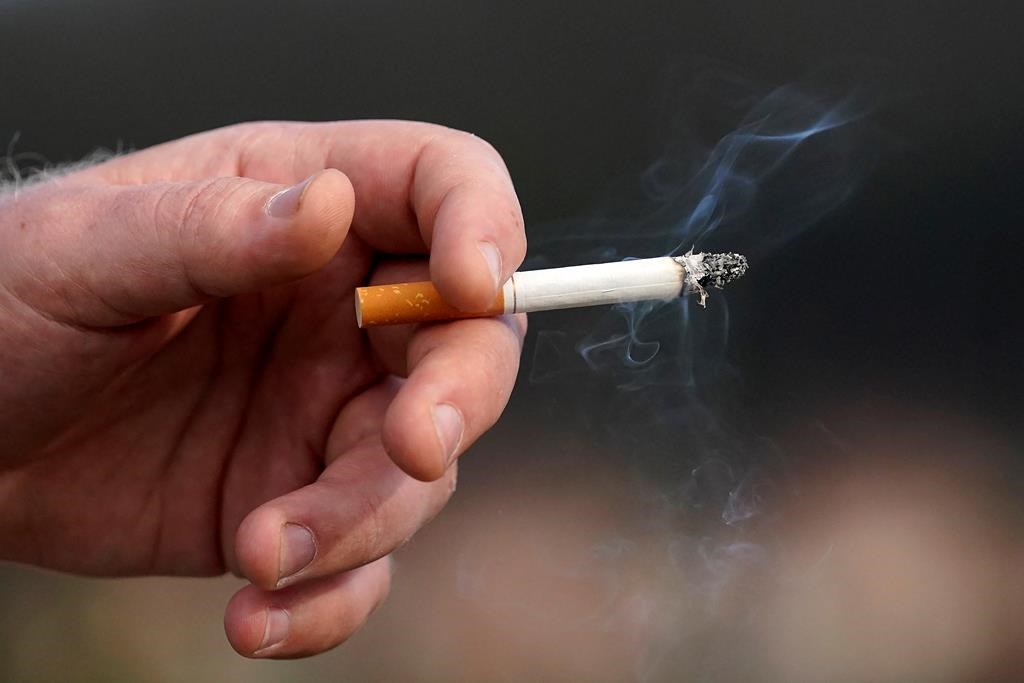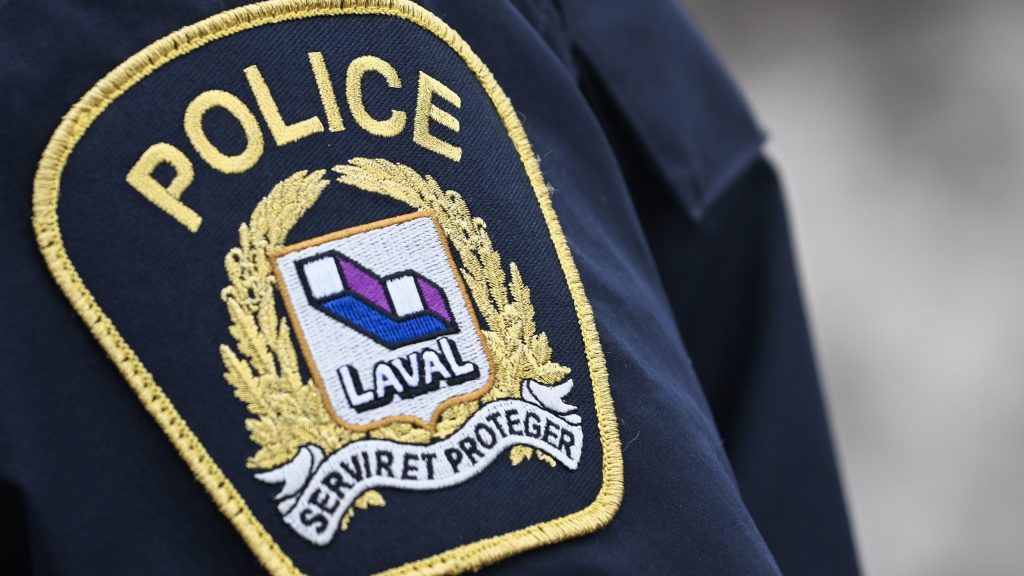Tobacco giants would pay $32.5B to provinces, Quebec smokers in ‘historic’ proposed deal

Posted October 17, 2024 11:58 pm.
Last Updated October 18, 2024 6:41 pm.
Three tobacco giants would pay close to $25 billion to provinces and territories and more than $4 billion to tens of thousands of Quebec smokers and their loved ones as part of a newly proposed deal in a corporate restructuring process triggered by a long-running legal battle.
A proposed plan of arrangement developed through mediation was filed in an Ontario court Thursday after a prolonged five-year process.
The companies — JTI-Macdonald Corp., Rothmans, Benson & Hedges and Imperial Tobacco Canada Ltd. — sought creditor protection in Ontario in early 2019 after they lost an appeal in a landmark court battle in Quebec.
The Ontario court put all legal proceedings against the companies on hold as they tried to work out a deal with their creditors, which include the plaintiffs in two Quebec class-action lawsuits as well as provincial governments seeking to recover smoking-related health-care costs.
Under the proposed plan filed Thursday, provinces and territories would receive payments over time, with roughly $6 billion to be paid out when the deal is implemented.
The Quebec plaintiffs would file claims for compensation of up to $100,000 each.
“The Quebec class action really is a world first, that there’s going to be so many smokers compensated so easily,” says Cynthia Callard, Executive Director of Physicians for a Smoke-Free Canada. “Quebec smokers who won a victory against tobacco companies back in 2015 will finally can look forward to actually receiving the payments that were awarded to them.”
The proposed plan also includes more than $2.5 billion for smokers in other provinces and territories who were diagnosed with lung cancer, throat cancer or chronic obstructive pulmonary disease between March 2015 and March 2019. They would be eligible for up to $60,000 each.
“We don’t really know how many claimants will come forward and to what extent they can prove their claim,” said Michael Peerless, Head of Class Actions for Mckenzie Lake andco-counsel counsel for the consortium of clients including governments and territories
“There are certain types of diseases that are very likely to have been caused by smoking and if people have can prove that they smoked for a long period of time and then got one of those diseases, then they’re eligible for to both make a claim and to be compensated
Bruce W. Johnston, one of the lawyers for the Quebec plaintiffs, said the proposal is “historic and unprecedented” because it allows for the compensation of smokers as well as governments.
“When we took this case, there had never been a single plaintiff who had received a single penny from a tobacco company,” he said Thursday.
“We took this case in 1998 and as a result of our case, not only will tens of thousands of victims be compensated by the tobacco industry in Canada, most of them in Quebec, but also governments are going to be sharing $24 billion.”
The plaintiffs have endured lengthy delays and now they can finally see that there’s “probably a light at the end of the tunnel and that they will receive compensation,” he said.
While many of the class-action members died before they could receive any money from the companies, their successors — and in some cases, their successors’ successors — will be eligible for compensation, he said.
“This saga has lasted for over 25 years, the rules are being extended to be more inclusive and victims, so it’s no longer just victims and their immediate inheritors, but the inheritors of the inheritors, so that’s good news,” says Flory Doucas, co-director and spokesperson of the Quebec Coalition for Tobacco Control.
The proposed deal would also see the companies pour more than $1 billion into a foundation to fight tobacco-related diseases. That amount includes $131 million taken from the money allocated to the Quebec plaintiffs.
The proposal must still go through several steps before it can be put into action, including a vote by creditors and approval by the court.
“If the plan is approved and implemented, approximately $12.5 billion would be paid upfront, shortly after court’s implementation of the plan,” said André I.G. Michael, Senior Partner in Medical Negligence at Siskinds LLP and lead negotiator.
The mediation was confidential, so the class-action members couldn’t know how things were progressing and many didn’t understand why it was taking so long, Johnston said.
Several health-care groups argued the lack of transparency surrounding the talks would benefit the companies at the expense of other stakeholders.
As recently as last month, three groups — Action on Smoking & Health, Physicians for a Smoke-Free Canada and the Quebec Coalition for Tobacco Control — said recent court filings suggested the provinces had agreed to a process that would give the companies veto power over the final deal.
The groups have consistently urged the provinces to impose regulations and smoking-reduction measures as part of a deal with the companies.
“We would have hoped that this deal would be an accelerated phase out of cigarettes, that it would have enshrined in some way and bound the tobacco industry, these three large manufacturers in Canada to, for example, meet the federal strategy objective, which is reduce smoking to less than five per cent by 2035,” said Doucas.
Some organizations, including the Canadian Cancer Society, were also calling for a deal to involve the public disclosure of internal company documents.
Rob Cunningham, a lawyer for the Canadian Cancer Society, said the proposed deal is “the most significant proposed settlement in the world outside of the United States” in a case of its kind so far.
But unlike the global settlement reached with tobacco companies in the U.S. in the late 1990s, it doesn’t include policy measures aimed at reducing tobacco use or any public disclosure of documents, he said.
He said the cancer society, which has been named a social stakeholder in the case, will review the details of the roughly 1,400-page proposal and make submissions as part of the approval process.
The Quebec lawsuits involved smokers who took up the habit between 1950 and 1998 and fell ill or were addicted. Heirs of such smokers were also party to the suits.
Court filings from last year suggest hundreds of the class-action members have died since the creditor protection proceedings began.
“If you’re a close relative of someone who died or who developed lung cancer, lung cancer of the throat, or suffered emphysema, then I would encourage you to reach out to these various groups,” said Doucas.








